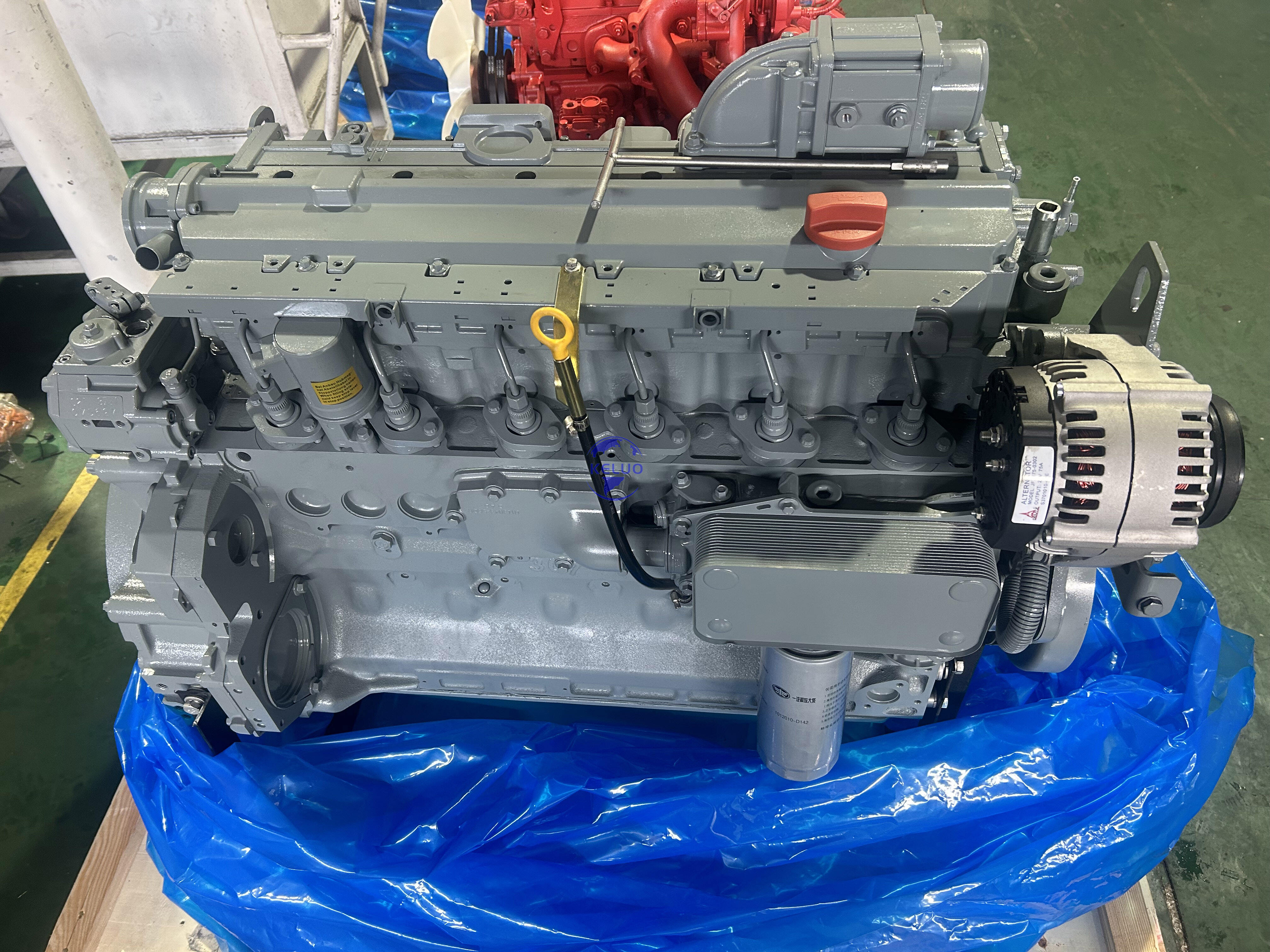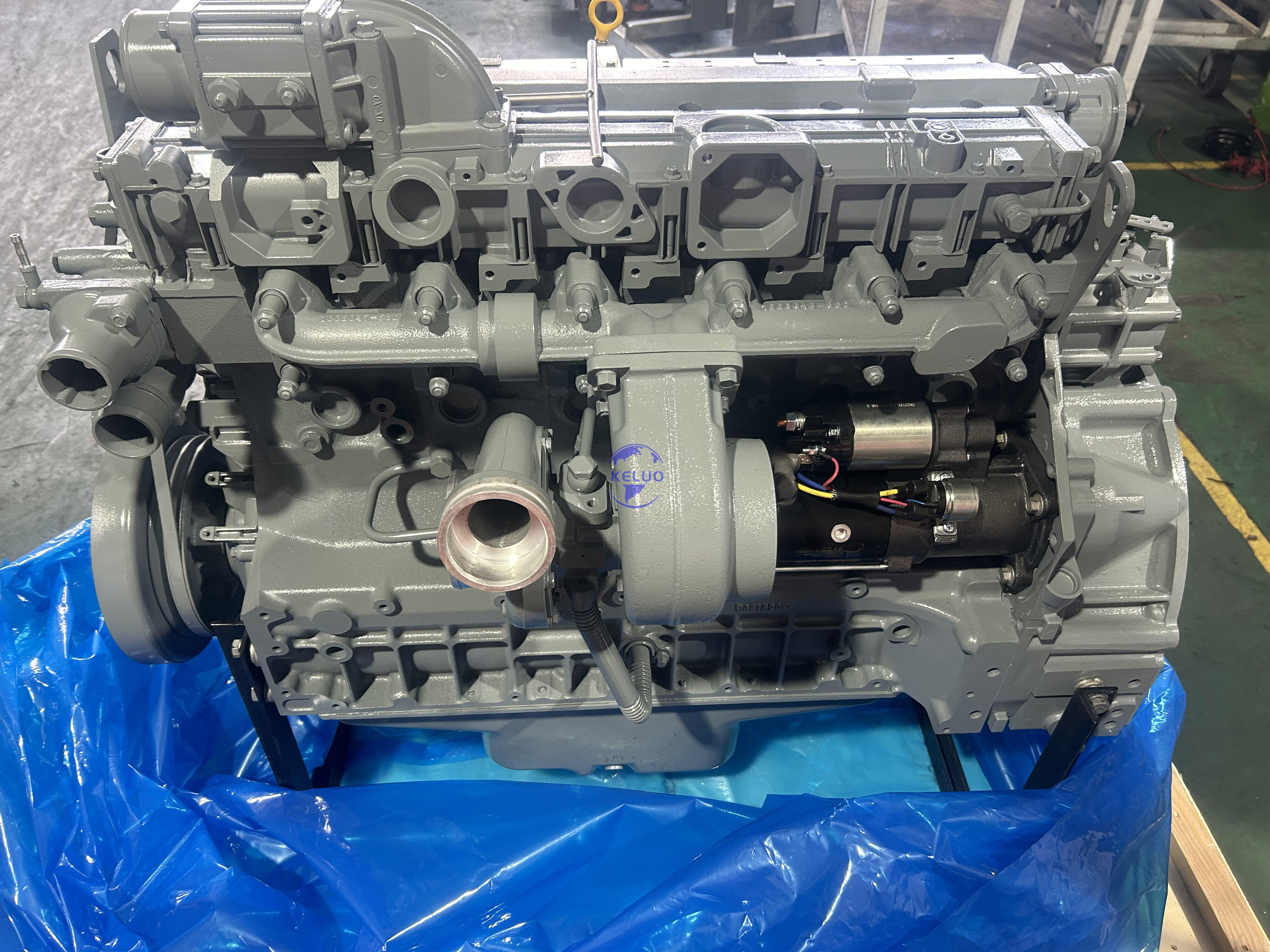Maximizing Heavy Equipment Power and Efficiency
The heart of any construction machinery lies in its excavator engine, determining not just the equipment's raw power but its overall efficiency and longevity. Whether managing a construction fleet or operating a single machine, understanding how to optimize your excavator engine performance can significantly impact productivity and reduce operational costs. Modern excavator engines have evolved into sophisticated powerhouses, combining advanced technology with robust engineering to deliver exceptional performance under demanding conditions.
As construction projects become increasingly complex and deadlines more stringent, the need for peak excavator engine performance has never been more crucial. This comprehensive guide explores proven strategies and expert insights to help you maximize your equipment's potential while ensuring sustainable operation and extended service life.
Essential Maintenance Practices for Peak Performance
Regular Inspection and Fluid Management
Maintaining optimal excavator engine performance begins with a systematic approach to routine inspections. Daily checks of engine oil levels, coolant conditions, and hydraulic fluid quality form the foundation of preventive maintenance. These vital fluids serve as the lifeblood of your machinery, carrying away heat and contaminants while ensuring smooth operation of all moving parts.
Modern excavator engines require specific grade oils and coolants designed for heavy-duty applications. Using the manufacturer-recommended fluids and maintaining proper levels can prevent premature wear, reduce friction, and optimize fuel combustion. Regular fluid analysis can also provide early warning signs of potential issues, allowing for proactive maintenance before minor problems escalate into major repairs.
Filter Replacement and Air System Management
The filtration system plays a critical role in protecting your excavator engine from harmful contaminants. Air filters prevent abrasive particles from entering the combustion chamber, while oil filters remove metal particles and other debris from the lubricating system. Establishing a regular replacement schedule based on operating hours and environmental conditions ensures consistent protection.
Special attention should be paid to the air intake system, as construction environments often present challenging conditions with high dust levels. Consider installing pre-cleaners or advanced filtration systems for operations in particularly dusty areas. Clean air delivery not only protects internal engine components but also optimizes the fuel-air mixture for better combustion efficiency.

Advanced Optimization Techniques
Fuel System Enhancement
The fuel system directly influences excavator engine performance and efficiency. Regular fuel system maintenance, including injector cleaning and fuel filter replacement, ensures optimal fuel atomization and combustion. Modern fuel system additives can help prevent injector deposits, improve fuel stability, and enhance overall engine response.
Consider implementing a fuel quality management program that includes regular testing and proper storage practices. Clean, water-free fuel not only protects expensive injection components but also maintains consistent power output and fuel economy. Advanced fuel monitoring systems can provide real-time data on consumption patterns and help identify opportunities for optimization.
Electronic Control Unit Calibration
Today's excavator engines rely heavily on sophisticated electronic control systems to manage various operating parameters. Professional ECU calibration can optimize fuel mapping, timing, and power delivery for specific applications and operating conditions. However, any modifications should be performed by qualified technicians to ensure compliance with emissions regulations and manufacturer warranties.
Regular diagnostic scanning can identify potential electronic issues before they affect performance. Modern telematics systems provide valuable data on engine parameters, allowing for predictive maintenance and performance optimization based on actual operating conditions and usage patterns.
Operational Best Practices
Proper Warm-up and Cool-down Procedures
The way an excavator engine is operated significantly impacts its performance and longevity. Implementing proper warm-up procedures allows oil to reach operating temperature and establish proper circulation before applying heavy loads. Similarly, allowing adequate cool-down time helps prevent thermal stress and protects turbocharger components.
Operators should monitor engine temperature gauges and avoid extended idling, which can lead to carbon buildup and reduced efficiency. Understanding and following the manufacturer's recommended operating procedures helps maintain optimal performance while preventing unnecessary wear and stress on engine components.
Load Management and Operating Techniques
Efficient operation involves more than just maintaining the excavator engine - it requires understanding how to manage loads and utilize the equipment effectively. Proper throttle control, avoiding unnecessary high-speed operation, and maintaining appropriate engine loads help optimize fuel efficiency and reduce wear.
Training operators in fuel-efficient techniques can significantly impact overall performance and operating costs. This includes understanding the relationship between engine speed and hydraulic power, proper bucket loading techniques, and optimal positioning for different tasks.
Performance Monitoring and Troubleshooting
Implementing Performance Metrics
Establishing a comprehensive monitoring system helps track excavator engine performance over time. Key metrics include fuel consumption rates, operating temperatures, oil pressure, and power output. Regular analysis of these parameters can identify trends and potential issues before they impact productivity.
Modern monitoring systems can integrate with fleet management software to provide detailed reports and analytics. This data-driven approach enables better maintenance planning and helps optimize equipment utilization across multiple projects or sites.
Diagnostic Procedures and Solutions
When performance issues arise, systematic diagnostic procedures help identify root causes quickly and accurately. Understanding common symptoms and their potential causes allows for more efficient troubleshooting and repairs. Professional diagnostic tools can provide detailed insight into engine parameters and system operation.
Maintaining detailed service records and performance logs helps track recurring issues and evaluate the effectiveness of maintenance procedures. This historical data proves invaluable when planning upgrades or determining optimal replacement timing for major components.
Frequently Asked Questions
How often should excavator engine oil be changed?
The optimal oil change interval depends on several factors, including operating conditions, environment, and oil type. Generally, most manufacturers recommend changing the oil every 250-500 operating hours. However, regular oil analysis can help determine the ideal interval for your specific application and operating conditions.
What are the signs of declining excavator engine performance?
Common indicators include increased fuel consumption, reduced power output, unusual noise or vibration, excessive smoke, and higher operating temperatures. Regular monitoring of these parameters helps identify potential issues early, allowing for timely intervention and preventing major failures.
Can aftermarket modifications improve excavator engine performance?
While certain aftermarket modifications can enhance performance, they should be carefully evaluated to ensure compatibility with manufacturer specifications and emissions requirements. Professional consultation is recommended to assess potential benefits and risks before implementing any modifications to your excavator engine system.

